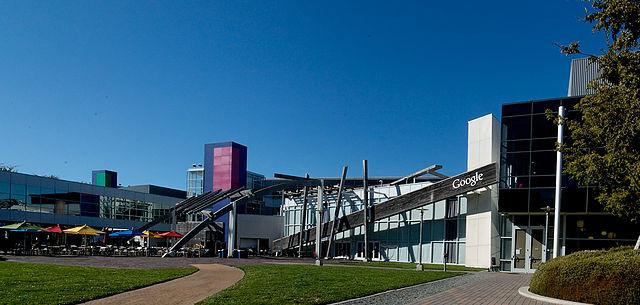
When you are tops in the industry, everyone is gunning for you and trying to knock you down, and that is certainly the case with Google. The company is attacked on all fronts, from privacy issues to its autonomous cars. But from its clean energy projects to expanding internet access worldwide, there is no mistaking that the company is changing the world with its investments, technology and “moonshot” ventures. Now the Silicon Valley giant is hoping to shake up industry far beyond the tech sector with its tackling of waste at its data centers and across the company’s entire operations.
As announced last week by Jim Miller, Google’s vice president of global operations, the company is approaching waste diversion from both environmental and economic perspectives.
The company is starting with the foundation of its business, the data centers that the company runs across the globe. Those data centers, which send and store billions of Gmail messages, stream YouTube videos and upload and share documents for its 50 million or so Google Docs users, consume copious amounts of energy and generate more than their fair share of waste.
But Google says that despite the constant upgrades and new equipment, the vast majority of those servers at its data centers often have a second life. Miller claims just over half of the components implemented for upgrades were refurbished equipment, and over 2 million units were resold to other organizations. Any other parts that cannot be sold or reused are recycled – Google insists none of them goes to landfill. The company also says it is actively sharing how it accomplishes this with other companies who are interested in reducing their loads of electronic waste. Although the company has not made a specific deadline of what it expects to go fully zero-waste, Google six of its 14 data center sites send nothing to landfill, and globally 86 percent of all of their waste is reused or recycled. Incineration, says Miller, will only occur if there is no other viable option.
For Google, such a task should be relatively easy compared to other techies. Writing in Fortune, tech columnist Katie Fehrenbacher noted that Google manufactures its own servers and computing equipment. Not relying on other companies for hardware allows Google to design it the best way it works for the company – and allows for reduced waste as its procurement team is not bouncing back and forth between vendors.
But it is not just computer hardware where Google is looking to prevent waste. The company says it has allowed for more recycling options at its employee desks, and is aggressively tackling the challenge of food waste. The famous free Google cafes and micro-kitchens, which have fostered a bevy of theories why Google spends so much money on good grub, always pose a challenge to the company’s waste management goals. But in addition to standard tactics such as composting and food donations, the company says it is working on procuring food that can help eliminate waste far beyond Google’s operations. Coffee flour, that uses parts of the coffee plant otherwise discarded after the beans are harvested, is one ingredient. The use of more misshapen, or “ugly” fruits and vegetables, is also occurring in Google’s cafes.
At a time when more companies realize that slashing waste is better for the bottom line, Google’s ideas could inspire other companies to follow suit. Tech firms such the now split-in-two HP and Microsoft say they have built net-zero energy or alternative powered data centers, but have a long road ahead if their waste reduction efforts approach anything near what Google says it is accomplishing.
Image credit: Sebastian Bergmann/Wiki Commons

Leon Kaye has written for 3p since 2010 and become executive editor in 2018. His previous work includes writing for the Guardian as well as other online and print publications. In addition, he's worked in sales executive roles within technology and financial research companies, as well as for a public relations firm, for which he consulted with one of the globe’s leading sustainability initiatives. Currently living in Central California, he’s traveled to 70-plus countries and has lived and worked in South Korea, the United Arab Emirates and Uruguay.
Leon’s an alum of Fresno State, the University of Maryland, Baltimore County and the University of Southern California's Marshall Business School. He enjoys traveling abroad as well as exploring California’s Central Coast and the Sierra Nevadas.














